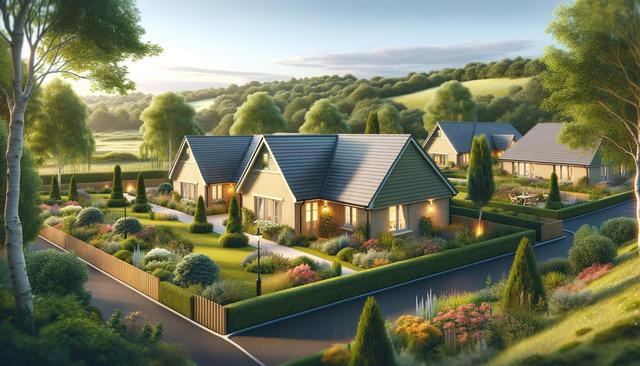
Comfort and Independence: Exploring Cottages for Seniors
Why Cottages Appeal to Retirees
As retirement approaches, many individuals begin rethinking their living arrangements. For those seeking simplicity, comfort, and independence, small cottages for seniors have become an attractive choice. These compact spaces are designed to be manageable, cost-effective, and cozy—offering a peaceful environment without sacrificing necessary support. Many retirees are moving away from sprawling family homes and opting for small houses for retirees that are easier to maintain and more suited to a slower-paced lifestyle.
Small retirement homes, including cottage-style setups, provide a homelike atmosphere that many seniors find more welcoming than larger, institutional facilities. These homes often include modern amenities, accessible design features like single-floor layouts and walk-in showers, and community-oriented surroundings. The appeal lies in the balance they strike between independence and support, making them ideal for those who wish to maintain autonomy but appreciate having help nearby.
Key Features of Small Senior Living Cottages
Small cottages for seniors are thoughtfully designed with aging in mind. The layout and features support both mobility and safety, offering peace of mind for residents and their families. Typically, these cottages are part of a community that may offer shared spaces for social interaction and optional care services. Some key features include:
- Single-floor plans to minimize fall risks
- Grab bars and non-slip flooring in bathrooms
- Open layouts for easy navigation
- Energy-efficient appliances and smart lighting
- Private outdoor spaces like patios or small gardens
These design elements contribute to the popularity of small house assisted living setups, which combine the intimacy of a private home with access to care services as needed. Such environments can be found within larger retirement communities or as standalone small retirement homes near me, depending on location and preference.
Health and Social Benefits of Living in Smaller Senior Homes
In addition to physical comfort, living in small senior care homes can offer emotional and social benefits. These environments promote stronger connections among residents and staff due to the close-knit nature of the community. Smaller settings often mean better staff-to-resident ratios, which can lead to more personalized care and attention.
Residents in small nursing homes near me often enjoy:
- Improved mental well-being through social interaction
- Faster response times from caregivers
- Lower stress levels due to quieter surroundings
- Opportunities to participate in group activities and hobbies
These benefits help seniors maintain a sense of purpose and belonging, which is crucial for mental and emotional health. The transition to a small retirement home can be significantly smoother when the environment feels more like home than an institution.
Choosing the Right Cottage-Based Retirement Option
When searching for the right senior living arrangement, location, services, and community culture are important factors to consider. Many families look for small retirement homes near me to keep loved ones close by. Proximity to family, healthcare providers, and familiar surroundings can make the adjustment easier and help maintain strong social connections.
Questions to consider when evaluating small house assisted living options include:
- What level of medical or personal care support is available?
- How many residents live in each home?
- What amenities and community activities are offered?
- Is there flexibility if care needs increase over time?
Taking the time to visit potential homes and speak with staff and residents can offer valuable insights. Each person’s needs are unique, so finding a setting that aligns with individual preferences and health requirements is key to long-term satisfaction and well-being.
Affordability and Financial Considerations
Another significant advantage of small cottages for seniors is their potential cost savings compared to larger facilities or full-scale retirement communities. These homes often require less upkeep and lower utility expenses, making them attractive to seniors on a fixed income. Additionally, small retirement homes can offer flexible pricing models based on the level of care and amenities provided.
Some financial factors to keep in mind include:
- Monthly rental or ownership costs
- Additional fees for care services or housekeeping
- Eligibility for government or insurance support programs
- Long-term affordability based on projected care needs
For many, the affordability of small senior care homes makes them a viable and attractive option. Whether choosing a small cottage within a larger community or an independent small retirement home, seniors can find arrangements that balance comfort, care, and cost effectively.

